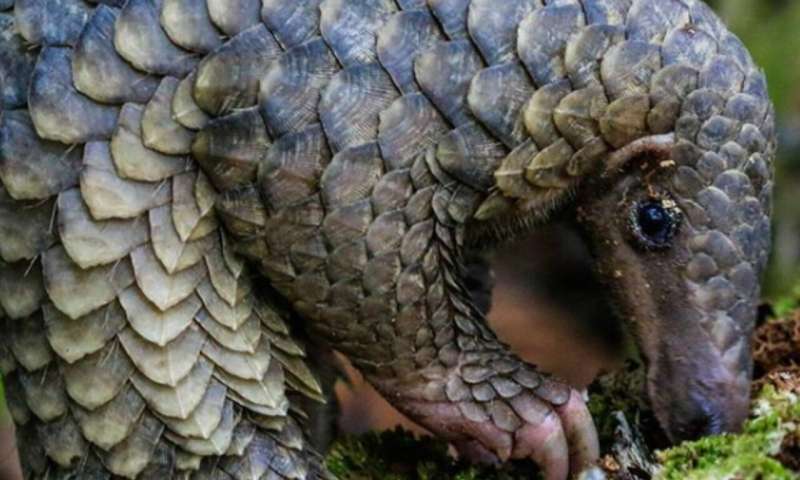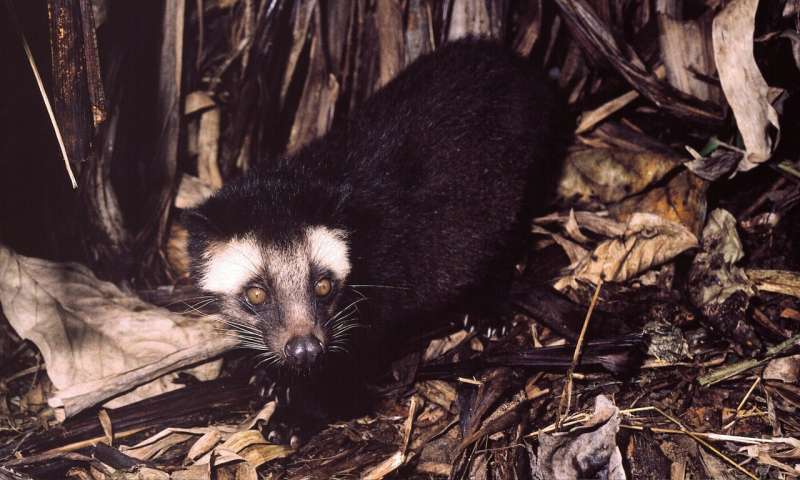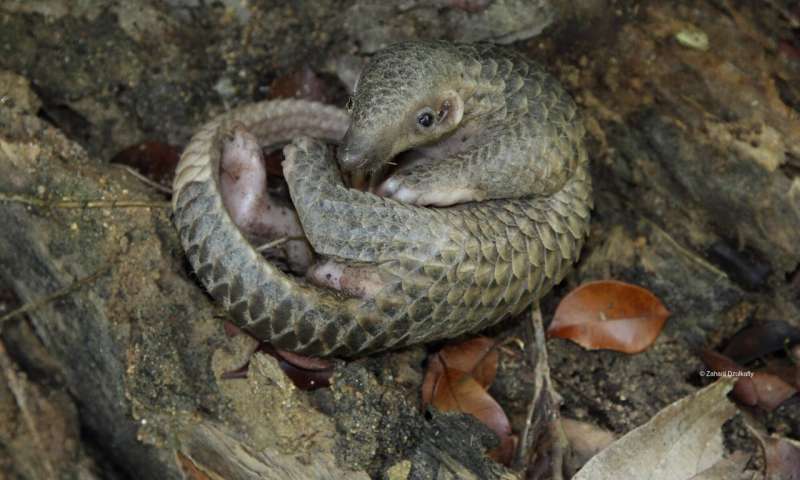Could illegally trafficked pangolins be the missing link in the coronavirus outbreak?

The deadly coronavirus outbreak, which has killed over 600 people and infected thousands more, may have been transmitted from bats to humans via pangolins, according to new research.
An as-yet-unpublished study by Chinese scientists has pinpointed these endangered scaly anteaters—the world's most trafficked mammal—as "the most likely intermediate host" of the virus.
If verified, the findings could have enormous implications for the future of these endearing and intriguing animals.
With leadership from China, global authorities are working hard to contain the spread of the Wuhan coronavirus. The Chinese government has already imposed a temporary ban on all wildlife trade in Wuhan, effective from 26th January.
In light of the outbreak, state-controlled Chinese media outlets have condemned the practice of wild meat consumption and called for permanent bans on wildlife trade. Thousands of Chinese citizens are reported to be echoing these calls on social media channels.
On 3rd February, the most powerful committee within the Chinese Community Party issued a statement confirming that it will "strengthen market supervision, resolutely ban and severely crack down on illegal wildlife markets and trade, and control major public health risks from the source."
Welcome though this announcement may be, the sad truth is that China is now paying a heavy price for an outbreak that was both predictable and preventable.

In 2002, a strain of coronavirus from wild civets infected humans at a wildlife market in Guangdong province in southern China. The ensuing epidemic of SARS (Severe Acute Respiratory Syndrome) resulted in more than 8,000 reported cases across 26 countries, and caused almost 800 deaths.
Almost two decades later, it is a case of history repeating. This latest coronavirus, which emerged in the Chinese city of Wuhan, is hypothesized to have been transmitted to humans at a "wet" wildlife market (where live and dead wild animals are sold).
Crossing the species barrier
Many serious human infections have originated in wild animals. These include influenza, plague, smallpox, rabies, typhus, yellow fever and AIDS.
In some instances, after being transmitted to humans, a virus will mutate and become a human-specific infection. In other cases, a virus will remain largely unchanged and remain only in the initial host species, until there is an opportunity to transfer to humans.
These opportunities are increasing. Growing global travel, climatic changes, urbanisation and other forms of human encroachment on wildlife habitats are providing more opportunities for so-called zoonotic infections to emerge. As the coronavirus outbreaks suggest, wildlife markets are providing the perfect breeding grounds.

Wildlife markets—a perfect storm
Humans have hunted and eaten wild species for thousands of years. But in recent decades, particularly across the tropics, hunting has increased so dramatically that many species are now facing local and global extinction. Moreover, rather than being consumed close to where they are hunted, many wild species are being transported far afield to feed demand in other countries. Today's industrial-scale illegal trade in wildlife across international borders involves a huge range of species from primates to pangolins, wild cattle to civets.
These wild animals—dead or alive, and often in poor and unhygienic conditions—are often thrown together and transported long distances. As in the market at the center of the Wuhan outbreak, these animals are then stored in close proximity to each other—and to shoppers and vendors—in their destination markets. This provides the perfect environment for viral infections to cross species barriers. Illegal trade in wild species not only threatens the survival of endangered wildlife, but also poses a very real risk to human health.
This is a global issue, rather than a problem unique to China, but the country is unarguably at the epicenter of the current crisis. How it responds to this latest coronavirus outbreak could well determine the future of the world's beleaguered pangolin populations and of the myriad other species threatened by illegal trade.
The crucial point, worth re-emphasizing here, is that pangolins—if indeed they turn out to be the vector of the outbreak—are not the villains of the piece. There is a genuine danger that the knee-jerk reaction will be to demonize an animal that is an unwitting accomplice in a human-induced crisis. The real crime is being committed by the profiteers who are hoovering pangolins from the wild in industrial quantities and driving them towards extinction. And the solution is to give these extraordinary and irreplaceable creatures the protection they desperately need, rather than making them the scaly scapegoats.
Clamping down on wildlife trafficking
To reduce risks posed to human health and to prevent species extinction, Fauna & Flora International (FFI) is calling on governments globally to take stronger action to stop illegal and unregulated wildlife trade. A worldwide clampdown on the marketing and consumption of illegal wildlife products—including all eight species of pangolin—is urgently needed. It goes without saying that demand reduction will also be critical to long-term success, in order to ensure that a permanent ban does not merely displace trade elsewhere and push transactions underground.
Provided by Fauna & Flora International




















